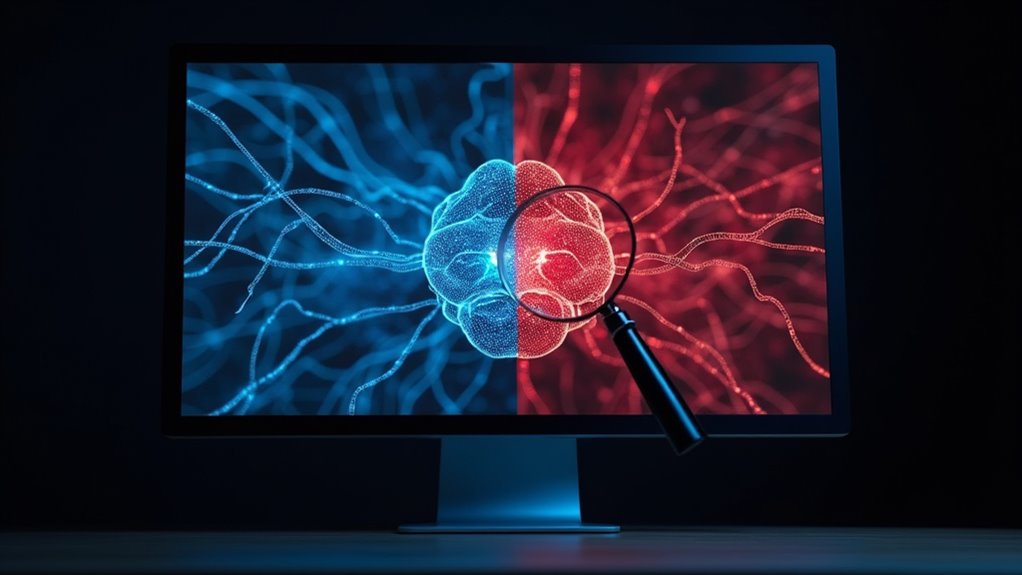When AI messes up, it’s not just your playlist that goes haywire—think misdiagnosed illnesses in healthcare, lawsuits piling up in finance, or PR disasters everywhere else, all sparked by hidden algorithm bias and lackluster oversight. *Crummy data*, untested code, and teams that could use a bit more diversity? Yeah, that’s how you end up with biased “intelligent” systems. Regular audits aren’t a luxury; they’re survival. Curious how these behind-the-scenes blunders can tank trust faster than a bad sequel? Stick around.
Let’s not forget healthcare, where AI bias isn’t just awkward—it’s dangerous. Biased medical algorithms can mean the difference between a correct diagnosis and a life-threatening mistake.
And if you think the finance world is safe, think again. Highly regulated industries face mind-bending challenges in rooting out bias, trying to keep regulators happy while not accidentally ruining lives. Public skepticism about AI’s role in news and elections is high, with only about 10% expecting a positive impact, underscoring how little trust there is in these systems.
Now, the compliance risks aren’t just legal fine print. Companies can face actual lawsuits, hefty fines, and a PR nightmare if their AI gets it wrong.
The financial impact? Huge. Reputation damage? Even bigger. Public scrutiny is at an all-time high, with everyone from watchdogs to your nosy neighbor keeping tabs.
AI systems aren’t neutral—they reflect the values of their developers, which means the risk of bias is baked in from the start. Regular audits are essential to identify and address biases before they cause widespread harm.
So what’s causing all this mess? Take your pick:
- Crummy data
- Flawed algorithms
- Human prejudice baked into the code
- Teams lacking diversity
- Testing that’s more “meh” than meticulous
Despite “fairness-first” strategies and experts preaching transparency, bias just won’t quit. Achieving demographic parity—equal outcomes for all groups—sounds great, but remains elusive.
Until robust regulatory frameworks catch up, the risk is real: AI bias could deepen social inequalities and tank business bottom lines.
Bottom line: When AI gets it wrong, it’s not just awkward—it’s risky, expensive, and, frankly, a little embarrassing.









